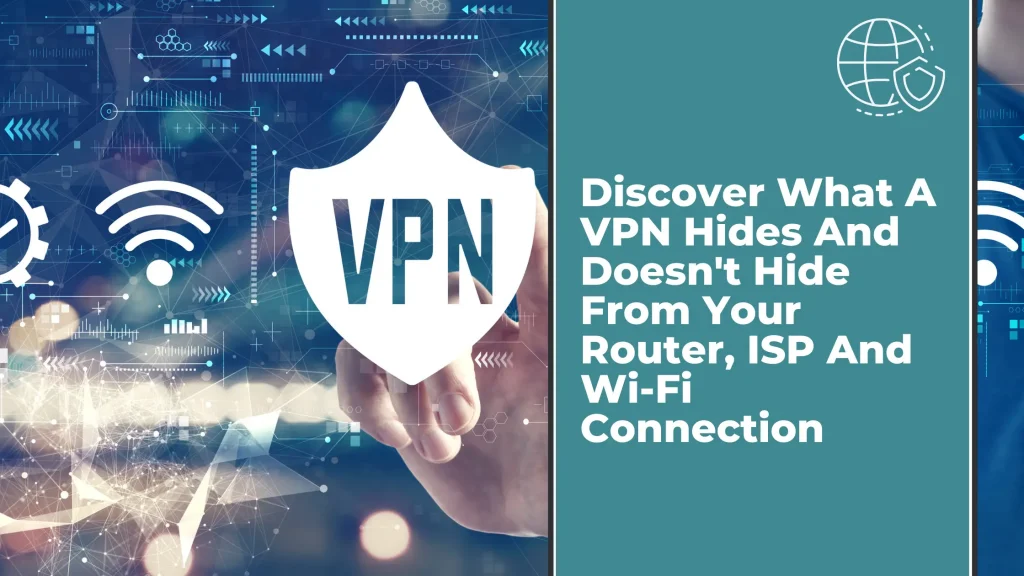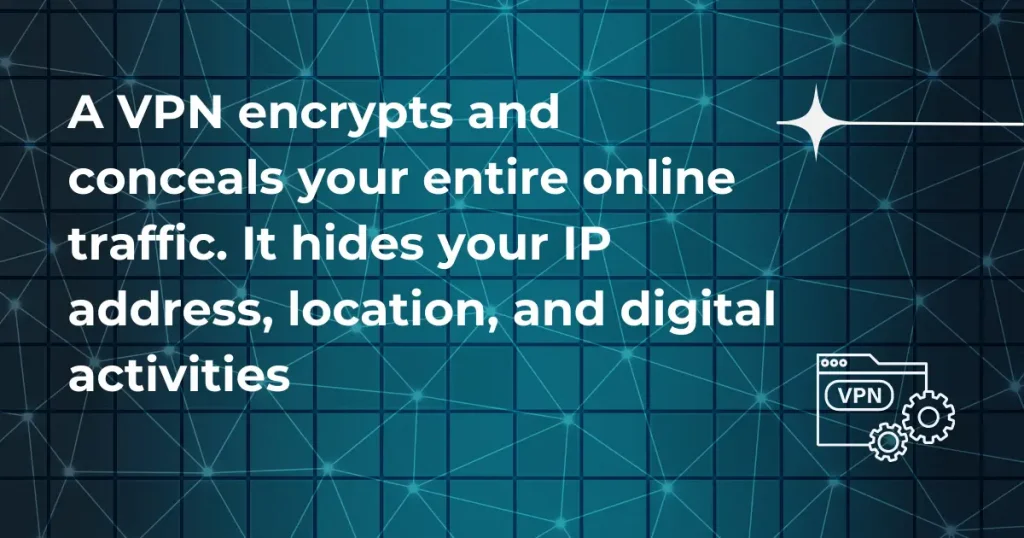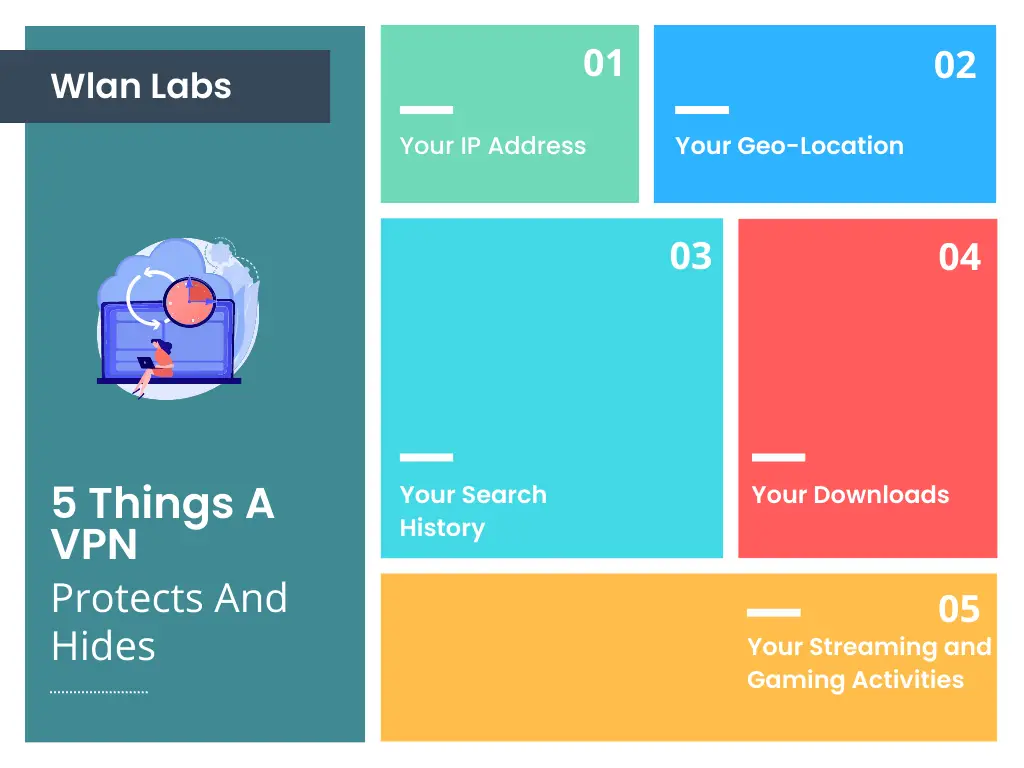
Chris Lawrence is a journalist and chief editor at Wlan Labs. He has been writing about technology for more than ten years. He writes about everything ranging from privacy to open source software. His goal is to educate readers about important topics to help make their lives easier.
As time has gone by, more and more web users are turning to VPNs to keep their internet activities private.
There could be any number of reasons why you might want to hide your browsing history or search history.
You may wish to look for a surprise present for a family member who uses the same device. Or you may wish to use a file-sharing torrent site, or you may want to access social media that your particular country or state has banned.
But if you’re new to using VPNs, you may have questions about what a VPN can achieve. Especially in terms of hiding your internet browsing and search history.
If this sounds like you, you’ve come to the right place. In this article, you will learn whether a VPN will hide your internet browsing and search history from your Internet Service Provider (ISP), Google, a router, or an employer.
By the end of this article, when you reach the conclusion, you will be fully informed and be able to decide whether investing in a VPN will suit your particular needs.
Please feel free to scroll ahead to any section that jumps out at you.
The Basics: Your Internet Path When Browsing With VPN
Let’s kick things off with the basics – the path taken by your information when you browse the net.
When you type in the search bar, the information travels from the browser to a router before going to your Internet Service Provider (ISP). All 3 of these can log your browsing history.
A VPN will only conceal your browsing and search history on specific points in this chain. It cannot hide everything everywhere.
Let’s break this down into more specific areas: whether a VPN will hide your browsing and search history from your ISP, your Google, your router, or your employer.

Does A VPN Hide Your Browsing History From Your ISP?
I have good news in this department – using a VPN will conceal your browsing and search history from the ISP.
All the ISP can see is that you’re connected to a VPN server and what times you were connected. Which websites you visited will remain private from your ISP thanks to the powerful encryption the VPN uses.
Does A VPN Hide Your Search History From Google?
Now it’s time for the bad news. A VPN can only partially hide your search history from Google.
This is because Google uses sophisticated tracking techniques and detection algorithms to identify who is using their search engine.
Google retains information on your past searches and can link them back to you. Especially if you are signed in to a Google account.
Google can also identify which browser or operating system you use, what cookies you still have stored, and even your GPS location.
How To Hide Your Search History From Google
By far, the easiest way to hide your searching from Google is not to use Google in the first place. There are several alternatives to Google, and some do not log or collect search data, like DuckDuckGo, for example.
But alternatives to Google are not ideal, and Google is still the best search engine around by far.
So if you want to use Google but hide your search queries from it, you will have to follow the following steps before you start typing in your search queries:
- Make sure you’re not logged into your Google account
- Connect to a VPN server
- Make sure your GPS detection is disabled
- Open an Incognito window on your browser

Does A VPN Hide Your Browsing History From A Router?
The good news is that whenever you use a VPN server, all internet traffic uses strong encryption as soon as the date leaves your PC or device.
This means that when you are using a VPN, all the websites you visit are entirely hidden from your router.
A router collects minimal data and cannot store details of your entire browsing history. But it will keep a log of times you have connected to a VPN server.
Does A VPN Hide Your Browsing History From Your Employer?
An employer can see anything an ISP sees, which means that using a VPN will conceal your browsing history from your employer and access sites that the employer blocks.
Does A VPN Hide Your Browser History From Your Internet Browser?
Unfortunately, a VPN will not automatically hide your search and browsing history from your browser, so if you need to cover this up, you will have to do so manually.
The easiest way to hide your browsing history from your browser is by using an Incognito window on the browser and a VPN.
An Incognito window is a private browsing window, and it will automatically delete your browsing history when you close the browser down.
It’s also good practice to clear your cookies and your browser cache regularly.
Does A VPN Hide Your Location On iPhone?
Many people use Virtual Private Networks (VPNs) to protect their privacy online, but does a VPN hide your location on an iPhone?
As we previously discussed, a VPN is a piece of software that encrypts your internet traffic and routes it through a server in another location.
This has two main benefits: first, it prevents your ISP from snooping on your web browsing; second, it can help you access geo-blocked content. For example, if you connect to a server in the US, you’ll be able to access US-only websites and services such as Netflix.
As for whether a VPN hides your location on an iPhone, the answer is yes – but only if you’re using a reputable VPN service.
When you connect to a VPN, the app will route all of your traffic through an encrypted tunnel to the VPN server.
This means that your ISP will only be able to see that you’re connecting to the VPN server – they won’t be able to see what you’re doing online.
Furthermore, the VPN server will mask your real IP address with one from the server’s IP range.
Do VPNs Protect You From Hackers And Viruses?
It’s crucial to understand that VPNs don’t work like the most comprehensive anti-virus software. While they secure your IP and protect your web browsing history, this is the most they can do. They will not protect you if you go to phishing sites or download corrupted files.
Summary Table
Here’s a quick table summarizing what your VPN can and can’t hide your data from:
| Hides Activity From | Your Browsing History | Your Search History |
|---|---|---|
| Your ISP | Yes | Yes |
| Your Router | Yes | Yes |
| University Or Employer | Yes | Yes |
| Yes | No | |
| Firefox, Chrome Or Opera | No | No |
I Keep Hearing About DuckDuckGo. What Is It?
DuckDuckGo is not a VPN which, as you know, is a service that allows you to encrypt your internet traffic and hide your IP address. DuckDuckGo does not provide this service.
Instead, DuckDuckGo provides a search engine that does not track or store your personal information. This makes it a more privacy-friendly alternative to Google and other search engines.
Wrap Up
So, it’s safe to conclude that a VPN is well worth investing in if you want to keep your internet searching and browsing private…
Thanks to the strong encryption used by a VPN, any internet browsing done will be hidden from your router and your ISP, which in turn means that your internet browsing is also hidden from your employer.
However, the bad news is that using a VPN does not always hide your browsing history from Google or your internet browser.
But the good news is that you can take steps to conceal your browsing from your browser, such as using an Incognito window.

